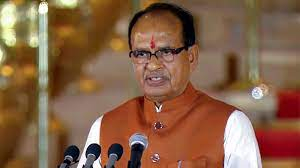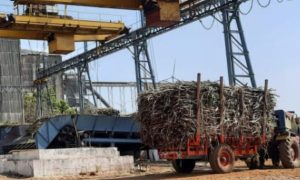Export-Import Policy Must Protect Farmers’ Interests

Agriculture Minister Shivraj Singh Chouhan outlined key reforms: boosting oilseeds and pulses, promoting genomic seeds, tackling climate impacts, and curbing fake agri inputs. He stressed balanced fertiliser use, improved procurement, and trade policies balancing farmer and consumer interests. Targeting 3–3.5% growth in FY26, he pledged satellite-based insurance assessments and climate-resilient crops to secure sustainable agricultural development.
Shivraj Singh Chouhan, minister of agriculture and farmers, is currently visiting states as part of Viksit Krishi Sankalp Abhiyan, which aims to familiarise 15 million farmers with farming practices specific to agro-climatic zones. Chouhan spoke to Sandip Das on the sideline of an event at Sehore, Madhya Pradesh, on the range of issues impacting the agriculture sector.
Q: You have taken charge of the agriculture ministry a year now. What are key challenges the sector is facing?
We need to ensure that farmers with small land holdings get profit from engaging in agricultural activities. We are focussing on creating better seeds through usage of new technologies such as recently Indian Council for Agricultural Research (ICAR) released two genome-edited rice varieties.
Crop diversification is also a challenge. We need to produce more oilseeds and pulses, while we are now producing more rice than required. Soybean yield has to be increased. Scientists should come to the fields and do research based on the needs of the farmers.
Another focus area is to align the use of fertilisers with soil quality. e need to create soil health cards for each farmer and need to educate the farmers about balanced use of fertilisers. After promotion of drip irrigation and mechanisation, we need to work on curbing excessive usage of pesticides.
Q: How do you intend to deal with issues associated with climate change?
Extreme weather events have really impacted agricultural output. Farmers have informed us that we need to develop varieties of mangoes which are grown in winter months not impacted by extreme weather events while increasing shelf-life of tomato varieties. For instance, we need to develop varieties which can be processed for products like puree, ketchup. We need to focus more on food processing.
Q: The procurement mechanism for oilseeds and pulses is still not robust..
This year we have promised 100% procurement of pulses varieties tur, urad and masoor and oilseeds such as soybean, groundnut and mustard under the price support scheme. We have made record purchases this season of these commodities, but states have to step in to procure pulses and oilseeds for boosting the output. Compare the current procurement levels with those in 2014 and there is a huge difference.
Q: Recently. the government allowed yellow peas import at zero duty till FY26 and reduction in import duties on crude edible oil..
We need to create a balance between providing remunerative prices to farmers and keeping consumer prices stable. As we are not self-sufficient in pulses and oilseeds, if we do not import it would create problems. Earlier there was no import duty on edible oil, which was raised to 20% and because of inflation in edible oils as suggested by the department of consumer affairs, the duties on cooking oils were recently reduced. Import and export policy should be such that it takes care of the farmers interest.
Q: You have been speaking of bringing in stringent provisions in dealing with fake pesticides and seeds? What are the measures you intend to take?
We are discussing it. As at present, there are cases of inferior quality of pesticides and seeds are sold to farmers. Current legal provisions against the sale of inferior pesticides and seeds are not stringent. Amendment to the Seeds Act is also being discussed.
Q: What are the prospects of agricultural growth for 2025-26?
Agriculture growth depends on the monsoon rains. If everything works according to plan, as we have achieved growth 3-5% for the last few years, we will try to maintain it. We expect to achieve 3-3.5% growth in the next year (2025-26). If unseasonal weather events like flood and excessive rains it impacts the growth. We are trying to strengthen the Pradhan Mantri Fasal Bima Yojana as there are reports that claim assessments are not carried out properly. Crop cutting experiments to ascertain yield are not perfect. Through usage of satellite remote sensing, we will assess the crop losses and work towards faster settlement of claims by insurance companies. Currently if claim settlements are not done in a timely manner, there is provision of a 12% penalty on the crop insurance companies.
To Read more about Wheat News continue reading Agriinsite.com
Source : Khabar India















